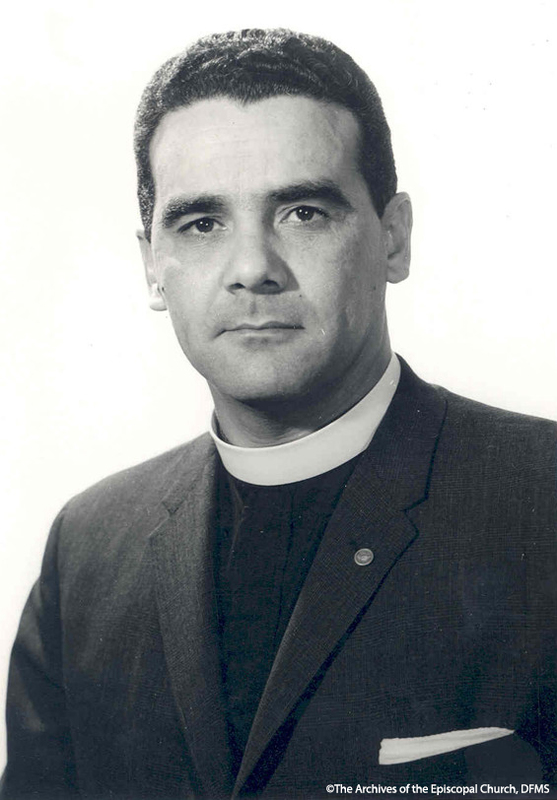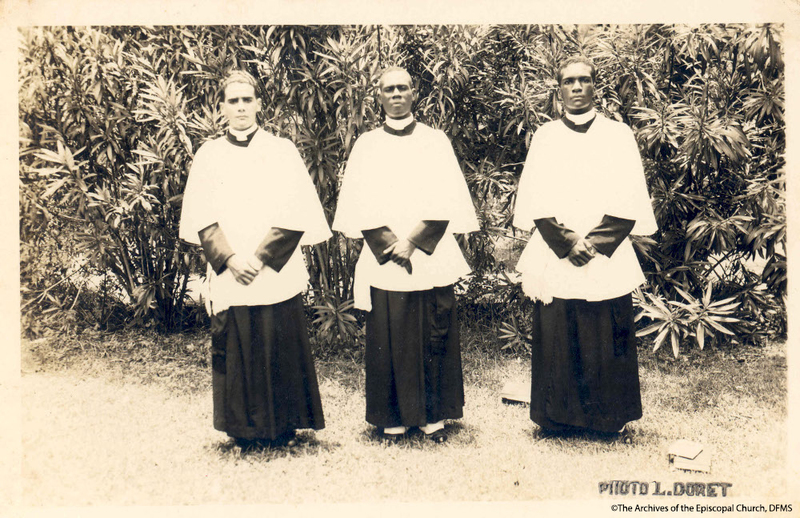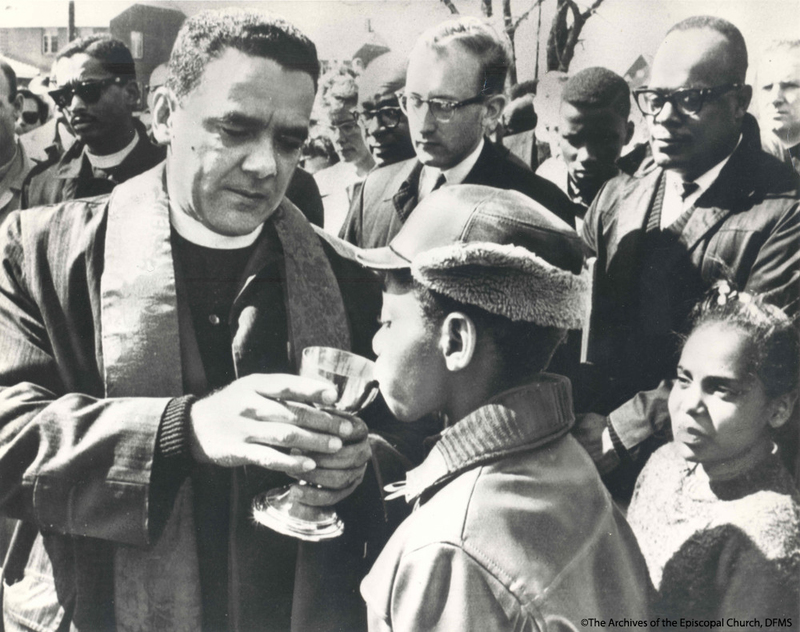Leadership Gallery
The Reverend Henri Stines, 1923-1995
Recognized as a preacher, a parish builder, and a critic of racism and sexism in the Church, Henri Stines is remembered as a multilingual liturgist and a leader in the ministry to the elderly and the homebound during his fifteen years as rector of Trinity Episcopal in Chicago from 1972 to 1986. He was an advocate for full integration and a voice for nonviolence and peace during the Civil Rights era.
Born in Port-au-Prince, Haiti in 1923, Henri Stines graduated from General Theological Seminary and was ordained a deacon in 1945 and a priest two years later. After serving two parishes and the Seminaire Theologique in his native homeland from 1945 to 1950, he returned to the United States, where he lived until his death in 1995. Throughout his long ministry, Stines ministered to parishioners in Charleston, West Virginia, Detroit, Washington, DC, Berkeley, Princeton, and Chicago.
While in Michigan, Washington, and California, he served on the Executive Councils of each diocese and acted as the Canon to the Ordinary (Frank Griswold) in the Diocese of Chicago for four years until 1989, the year before his retirement. Stines was also a deputy to the 1952, 1973, 1976, and 1979 General Conventions.
As a proponent of racial equality and integration, Stines worked for the Episcopal Society for Cultural and Racial Unity (ESCRU), serving as Director of the Southern Field Service from 1964 to 1966. During this time, he led protests against segregation in the deep South and acted to persuade clergy and laity to become more involved in seeking justice for all people. Stines also served Black congregations as rector at the Church of the Atonement in Washington, DC, as vicar at St. James’ in Charleston, West Virginia, and as chaplain at West Virginia State College.
Stines plunged into the heat of racial division in 1953 as rector of the Detroit parish at Grace Church. By the time he arrived at the parish, the membership of this once prosperous white church had dwindled to fewer than 100. Resentment towards the Black parishioners prompted the majority of the remaining white leaders to abandon the church, leaving the future of the parish in limbo. Stines’ commitment resulted in a growing membership comprised primarily of Black Americans, making Grace Church the largest and most active Episcopal church in Detroit upon his leave in 1964. Black financial support for the church and their positive response to the sophisticated liturgies offered by Stines contradicted the common beliefs of many.
Stines personal papers are located at The Archives of the Episcopal Church. [Sources]




